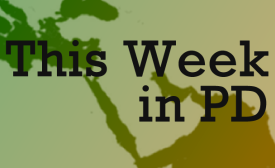Twitter is changing how diplomats interact and influencing how we see global leaders. From embarrassing tweets and international spats, the public is getting to see a different side of diplomacy, says a new study.
How social media changes our culture and our very lives is something many are researching today. A recent study praised Canada for their online diplomacy and also noted the sheer influence available online to Pope Francis.
The rise of social media in politics is no secret, and more and more world leaders are now turning to Twitter. According to Twiplomacy, a study by Burson-Marsteller, more than two-thirds (67.88%) of all heads of state and heads of government have personal accounts on the social network. For many diplomats, Twitter has becomes a powerful channel for digital diplomacy and 21st century statecraft. As of June 23, 2014, more than 80% of the UN member countries have a presence on Twitter.
Canada is among a small group of countries that have Twitter accounts for most of their embassies and missions, a global study revealed Wednesday. The study, called Twiplomacy and conducted by the public relations firm Burson-Marsteller, looked at the use of the microblogging site by heads of state and by governments and ministers of foreign affairs.
For a man who delivered the biggest mandate for a single party in several decades through unprecedented leverage of digital space, it is but natural for Prime Minister Narendra Modi to seek the same space as a platform for good governance. Modi gave an inkling of things to come in his ‘victory speech’ after the election results were declared on May 16. It was not a winding, rhetoric-filled public speech but a short and crisp Twitter message, “India has won. Good days are ahead”.

As Al Qaeda-inspired ISIS continues its violent march towards Baghdad, the group's social media outreach is being closely examined.
It's a truth of warfare in the digital era: Bullets and bombs often are augmented by status updates and tweets. The bloody conflict taking place in Iraq is no different.
The advance of an army used to be marked by war drums. Now it’s marked by volleys of tweets. The Islamic State of Iraq and Syria (ISIS), the Sunni militant group that seizedIraq’s second-largest city last week and is now pledging to take Baghdad, has honed this new technique—most recently posting photos on Twitter of an alleged mass killing of Iraqi soldiers.







